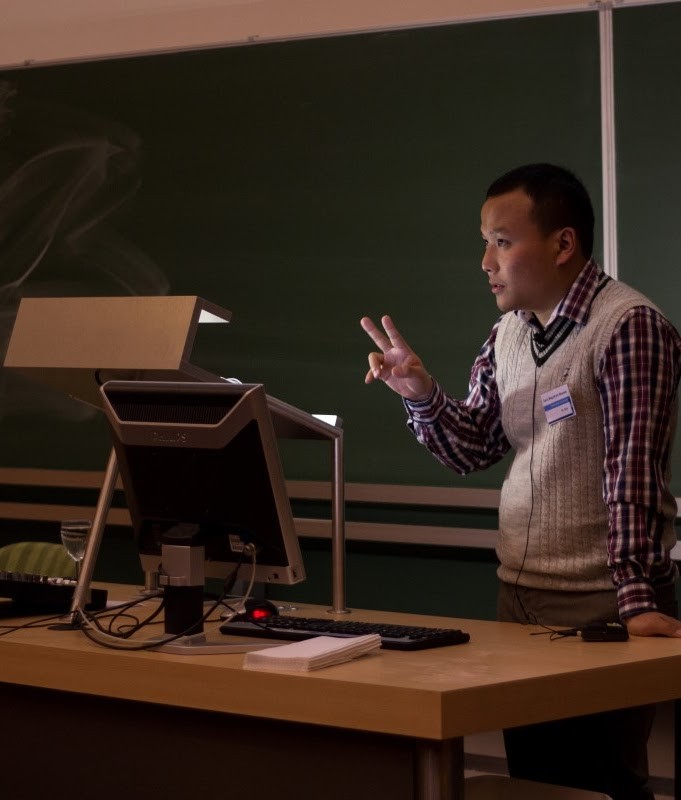Dr Savio Megolhuto Meyase.

A first of its kind in the region dedicated to ‘grammatical tone’
Vishü Rita Krocha
Kohima | December 27
Despite the fact that tones in languages are every bit as important as consonants and vowels in a word, grammatical tone is not something that is taught in schools. This was observed by Dr Savio Megolhuto Meyase, who is currently a Newton International Fellow of the British Academy based in the United Kingdom.
Earlier in January 2022, the British Academy awarded the fellowship to 12 talented overseas researchers enabling them to pursue postdoctoral research at universities in the UK. Meyase is one of the fellows for “Documentation of Complex Tone Systems in Endangered Tribal Languages of Nagaland, Northeast India.”
In the context of grammatical tones, he also remarked that “nor are they even indicated in our present-day orthography, in any of the languages in the region, and the general public is quite oblivious to it despite using it in their everyday speech.” He however felt this is a direct result of having borrowed education systems from languages that do without grammatical tone.
Towards this end, one of his many contributions in the area is the publication of his book, “Tenyidie Tone: A morpho-phonological investigation,” a first of its kind in the region that is dedicated to ‘grammatical tone.’
In an exclusive interview with The Morung Express, he related that, “native languages in the region are basically dying. Even Tenyidie, which has one of the highest numbers of speakers in the region, is classified as an endangered language by UNESCO.”
“Now, it is up to the society, and not the linguist, to decide what they do with their language and whether they chose to replace it with another, but a linguist can at least point that out and try to keep a record of whatever that can be collected,” he put across.
Highlighting that the book documents how tone works in the language grammar with particular focus on its behaviour in word formations, he conveyed that it can be read by anyone with any interest in exploring the language.
For the generic reader, he exuded hope that “the reader can gather how different Tenyidie is to any of the standard languages and the grammars that are taught in everyday school in the region and appreciate how languages can be very diverse and unique in their own way.”
“For the academic, I hope this will help not just in figuring out the Tenyidie grammar in a more concrete way but also serve as a means to build up their own studies in the language or related ones,” he expressed.
‘There is still a lot that can and need to be done for the languages in the region’
Dr Savio Megolhuto Meyase continues to pursue linguistics basically because in his words, “there is still a lot that can and need to be done for the languages in the region in various subfields of linguistics, not just for the sake of documenting them but also so that the wider academic community can see them, not just to appreciate them but also help in informing aspects of human language in general.”
As a Literature student, he had always been partial to poetry, and linguistics wasn’t really something he thought of taking up initially. He was however always interested in how words sound like, pronunciations, and how one transcribes spoken words into writings.
Once exposed to linguistics, he recalled, “it did click in quite fast” and after trying some courses learning more about linguistics, he also found that it was not just something that he would like to do but also needed to be done.
Writing the book (Tenyidie Tone) he also recollected, “Was a bit of a challenge because this was basically starting from scratch.” With hardly any literature that he could refer to, he said, “what was more challenging was first identifying what would make good research content and, because of the undocumented nature of the language, bringing together different apparently disparate interesting bits into one cohesive topic, into what is now a book.”
Despite the challenges, he articulated that “it was a good run with coming up with ideas, interviewing informants-mostly friends-and being in touch with various people in the field, all the while exploring more into what is my mother tongue, and finding out things which I would myself never have thought of about the language.”
Being an academic in general, he further expressed, “can be a little isolating, especially when you work in niche research areas. But at the same time, doing linguistics has also led me to meet, interact, and be in touch with people from very different walks of life from different parts of the world, something which I quite value, and something which I would probably never have got the chance to do otherwise.”






